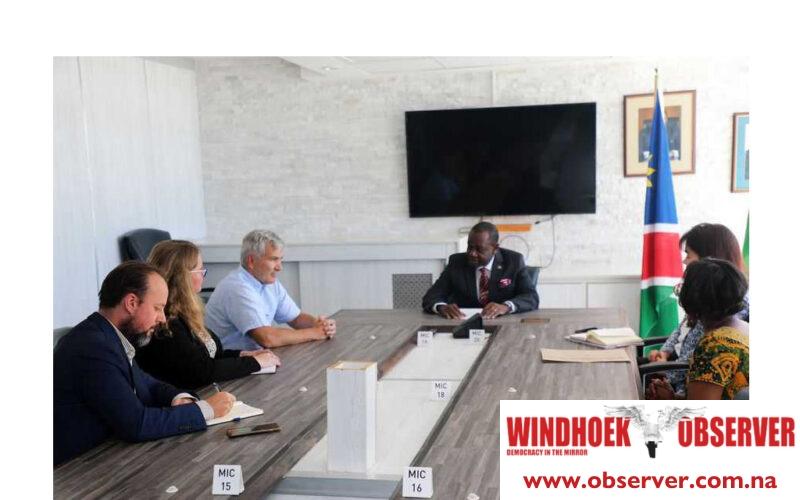Ester Mbathera
The Head of the European Union’s (EU) Mission in Namibia on behalf of member states made it clear that they did not discuss matters within the purview of the government with the leader of the Independent Patriots for Change (IPC), Panduleni Itula.
The European Union Delegation, on behalf of the heads of mission to Namibia from the European Union (EU), Germany, Spain, France, Portugal, and Finland, released this statement on Friday.
The statement was issued after their meeting with Itula had previously caused a stir within Swapo and with the Ministry of International Relations and Cooperation.
“The European Union Heads of Mission had an informal lunch with Itula to discuss the situation in Namibia, including, among other things, his election campaign. This is part of our general engagement with relevant actors in Namibia, as is typical for all diplomatic missions. This is confirmed by the Honourable Minister Mushelenga in his demarche,” reads the statement.
The EU Mission added that they neither commented on nor prejudged the outcome of any election, as Swapo Vice President, Netumbo Nandi-Ndaitwah alluded to during the party’s central committee meeting on Thursday.
“The European Union and its member states enjoy a warm and longstanding relationship with Namibia based on shared values and mutual respect,” reads the statement.
Itula, accompanied by the party’s Vice President, Trevino Forbes, accepted and attended a lunch hosted in his honour by the German Ambassador Thorsten Hutter, at the Ambassador’s residence in Klein Windhoek earlier this week.
International relations expert, Charles Mubita said the action by the German Embassy was a violation of the principles of international relations and diplomacy.
“It is against the spirit of the Constitution of the Republic of Namibia; against Namibian Foreign Policy, against the Vienna Convention, against the United Nations Charter, against the Non-Alignment Movement, against the Charter of the African Union (AU), and the protocols of Southern African Development Community (SADC) – all of which call for ‘non-interference in the internal affairs of the receiving state. International relations exist between states for a reason,” he said.
According to Mubita, the actions of the German Embassy fall under the category of “Gunboat Diplomacy.”
Gunboat diplomacy refers to a type of coercive diplomacy in which a powerful country uses its naval or military capabilities to intimidate weaker nations into compliance with its demands.
Mubita mentioned a similar incident in which the EU delegation caused a major rift in relations within Zimbabwe.
“Not long ago, Madagascar expelled the ambassador of the EU for interfering in the internal affairs of Madagascar. Those familiar with the principles of diplomacy have every right to be concerned by what Germany, the EU and Malaysia did a few weeks ago in Namibia. It is a total disregard for Namibia’s sovereignty and territorial integrity,” he said.




